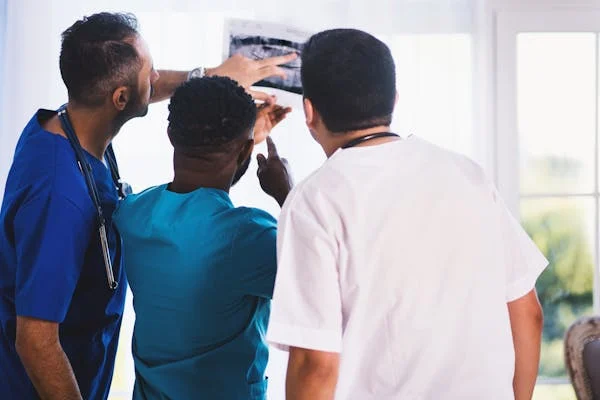
In the pursuit of understanding and combating addiction, doctors worldwide are increasingly forging international alliances to pool resources, share expertise, and accelerate research efforts. This collaborative approach not only fosters a deeper understanding of addiction but also enhances the development of effective treatments and interventions. Here’s a closer look at how doctors are forging international alliances for addiction research:
Global Collaborations:
Doctors recognize that addiction is a complex and multifaceted issue that requires a multidisciplinary approach. By collaborating with colleagues from diverse backgrounds and geographic locations, they can gain valuable insights into the various factors influencing addiction, including genetic predispositions, environmental influences, and socio-cultural contexts. International collaborations enable researchers to access a broader pool of data and samples, facilitating more comprehensive studies and analyses.
Sharing Knowledge and Expertise:
International alliances allow doctors to share knowledge, expertise, and best practices in addiction treatment and research. Through conferences, workshops, and collaborative projects, researchers exchange ideas, discuss emerging trends, and explore innovative approaches to addiction prevention, intervention, and recovery. This exchange of information helps doctors stay abreast of the latest developments in the field and encourages the adoption of evidence-based practices across different healthcare systems.
Leveraging Technology:
Advancements in technology have made it easier for doctors to collaborate across borders. Teleconferencing, video calls, and online platforms facilitate real-time communication and collaboration, allowing researchers to overcome geographical barriers and work together seamlessly. Virtual collaborations enable doctors to participate in international research projects, attend conferences remotely, and share data and findings with colleagues worldwide.
Access to Diverse Populations:
International alliances provide doctors with access to diverse populations affected by addiction. By studying different demographic groups, cultural contexts, and healthcare systems, researchers can gain a more comprehensive understanding of addiction’s impact and tailor interventions to suit specific populations’ needs. Collaborating with researchers from different countries allows for cross-cultural comparisons and the identification of commonalities and differences in addiction patterns and treatment outcomes.
Strengthening Research Infrastructure:
Collaborative efforts in addiction research contribute to strengthening research infrastructure and capacity-building initiatives worldwide. Through partnerships with academic institutions, government agencies, and non-profit organizations, doctors can access funding, resources, and research facilities to support their work. International collaborations also promote the training and mentoring of the next generation of addiction researchers, ensuring continuity and sustainability in the field.
Case Study: The Global Addiction Research Network (GARN):
One example of international collaboration in addiction research is the Global Addiction Research Network (GARN), a consortium of researchers, clinicians, and policymakers dedicated to advancing addiction science and practice. GARN facilitates collaborative research projects, knowledge exchange initiatives, and capacity-building programs aimed at addressing substance use disorders on a global scale. Through its network of partners, GARN promotes interdisciplinary collaboration, promotes evidence-based interventions, and advocates for policies that support addiction prevention and treatment efforts worldwide.
In conclusion, doctors are increasingly recognizing the importance of international collaboration in addiction research. By forging alliances with colleagues around the world, they can leverage collective expertise, access diverse populations, and strengthen research infrastructure to address the complex challenges posed by addiction. Through collaboration, innovation, and shared commitment, doctors are paving the way for a brighter future in addiction prevention, intervention, and recovery.
